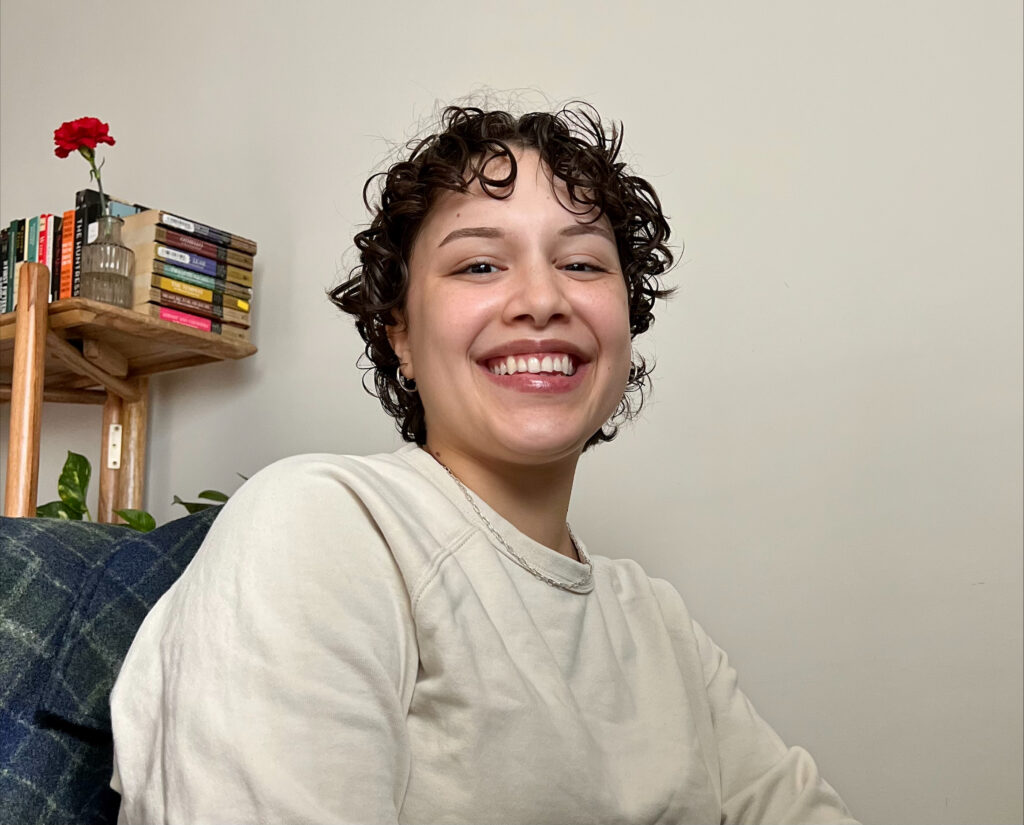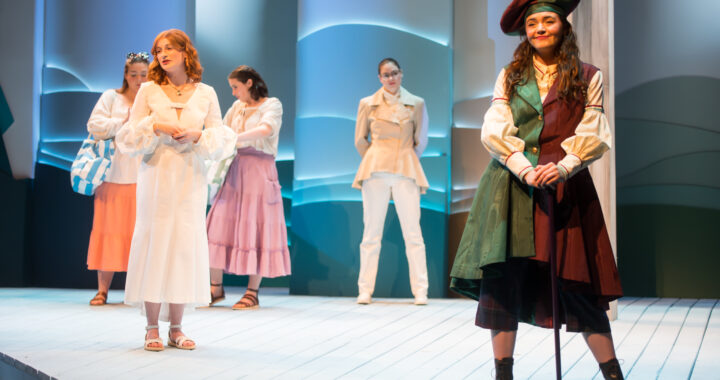Personal essay: “I know I am Latina Americana; that is without a doubt”
5 min read
Nathalie Luciano reflects on her multifaceted identity. | Nathalie Luciano, The Weekly Ringer
by NATHALIE LUCIANO
Staff Writer
As a Puerto Rican and Dominican woman who was born and raised in the United States, the issue I’ve faced for a while now is not about proving myself to be Caribbean enough or Latina enough. Rather, it is the disconnectedness I feel from a language and culture that I, at one point, felt so close to.
How do I recreate something that I feel like I never truly had? I have never been to either island my blood is from, yet I claim this cultural identity based on the warmth I feel when I hear a Dominican mother chastising her child or lovingly calling after her son when he wanders off. These occurrences remind me of my Maguela chastising my own mother before placing a warm meal in front of her; a sign of her love.
I know I am Latina Americana; that is without a doubt. However, it is something I want to show on my tongue and in my kitchen to bring back a part of my childhood I feel like I have lost as I have gotten older. I almost want to blame that “Americana” part for how I feel.
My mother immigrated from the Dominican Republic to the United States with her family when she was a young girl. Her mother moved her and her sisters from Puerto Rico to New York City before finally moving to New Britain, Conn., where she would later meet and marry my dad.
My mama didn’t learn how to cook growing up; her elder sisters got that privilege. It wasn’t until her adulthood that she started reaching out to my grandmother—who we call Maguela, a combination of mama and abuela—and her older sister to learn how to cook foods like carne guisada, arroz con salchicha and ponche con café the way they had it growing up. With time, my mom had collected a variety of Puerto Rican and Dominican dishes from her own family as well as from her mother-in-law that we all greatly enjoyed with copious amounts of avocados and plantains.
Growing up, I did my best to learn from and with her. At one point I was building my own mental library of recipes from my family and was doing a decent job of replicating them. Unfortunately, I started to forget these pieces of home once I moved out. I quickly realized that the sofrito you buy in stores is definitely not the same as the one my mother made, and that Sazón was strangely difficult to find in some of the stores I was shopping at. Thus, I was only able to replicate a few of the dishes I adored as a child. Even then, they hardly came out the same.
Practice makes perfect, but life became busy once I enrolled in college, and the time I had to practice these recipes dwindled more and more. During school breaks and empty weekends, I take time to learn recipes with my mom, such as the pastelón we recently made. Other moments, I make time to learn all over again how to make empanadas the way my mom does.
It felt like, at times, I was losing the “Latina” to the “Americana” when I didn’t cook my favorite foods and started to forget how to make them. So taking this time to recollect those memories filled with foods and times shared over the dinner table as a family has become a process that is precious to me.
My efforts to repair this disconnected feeling also extend to learning the language my parents speak.
When my sister and I were born, my parents didn’t prioritize teaching Spanish to us. Undoubtedly, this was due to my mom needing to care for two young daughters while her husband was off on deployments and other assignments during his military service. I believe that it was also because teaching us Spanish just wasn’t as important to her as it would become for me as I grew up.
Ironically, my mom and dad spoke Spanish in front of me for the majority of my childhood to talk, argue or discuss things they didn’t want us to know about. Little did they know, though, I was able to pick up bits and pieces of what they were saying over time, which was when I began to develop fluency in listening and understanding the language.
I felt like I knew everything at that point—everything from the family chisme my mom told me I was too young to hear about to where they were hiding the candy in our pantry. However, this all ended one summer when my Titi (Aunt) Melania was visiting us and caught on to my scheme. I was about 9 years old, and over steaming cups of Café Bustelo, I was the topic of chisme as she told my mom that I understood everything. As a result, the Spanish speaking in my house slowed, and I only learned little phrases and words that my mom would say here and there whenever she was impatient, angry or amused with us girls.
Spanish has only now become a language I feel comfortable and familiar with as an adult. After nearly four years of Spanish classes split between semesters at NOVA Community College and UMW, I have finally been able to start figuring out how to use the past tense and not flush red when speaking to strangers. It wasn’t until my classes at UMW with Profesores Larochelle and Delgado-Poust that I started to feel more comfortable and confident speaking my constantly-in-development Spanish to people outside of my family and in the workplace.
However, there is a difference between Castilian Spanish and the dialect my mother speaks. I wish I could have learned the latter since my Spanish always gives me away as someone who was born in the States.
Nevertheless, I was recently informed that I make the best ponche in my immediate family. I carry that title with great pride, as I have always felt that my Maguela made it the best.
There is a feeling of home over a steaming bowl of sancocho or the loud laughing that comes from a crowded kitchen. It is that feeling that I will recreate and return to in due time. With enough practice, I’ll get there.











